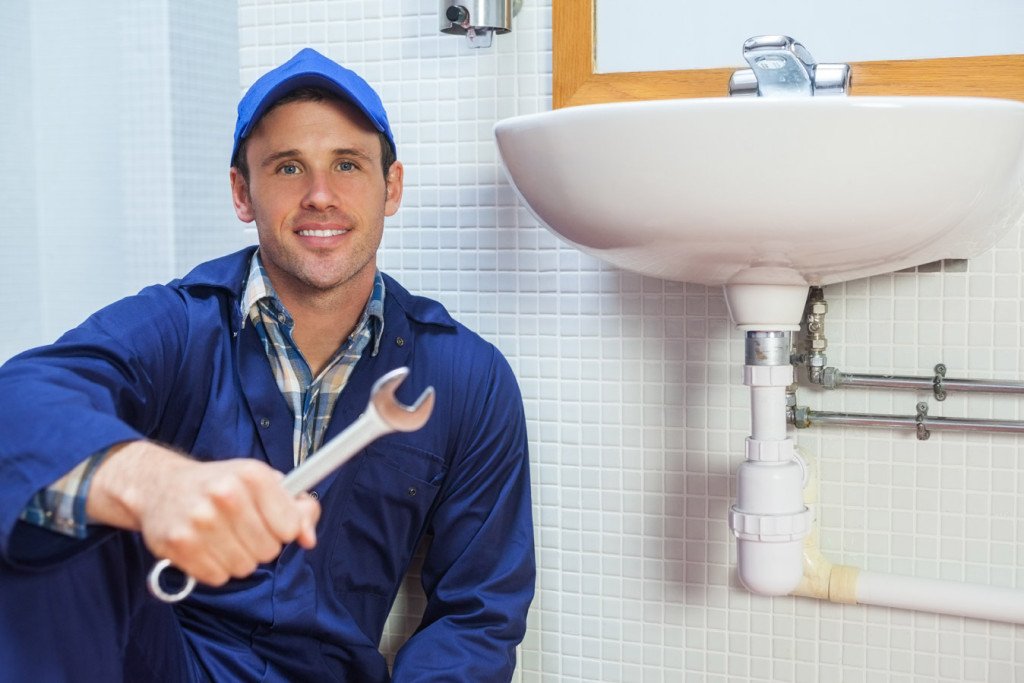How to Manage Your Bathroom Plumbing: Essential Tips for New Homeowners
How to Manage Your Bathroom Plumbing: Essential Tips for New Homeowners
Blog Article
Each person maintains their personal conception involving Essential DIY Bathroom Plumbing Tips Every Homeowner.

For new house owners, understanding and keeping bathroom plumbing can save both time and money by stopping pricey concerns down the line. Below are some essential bathroom plumbing suggestions to assist you keep whatever running efficiently.
Familiarize Yourself with the Main Shut-Off Valve
Understanding where the primary water shut-off valve lies in your house is vital. This allows you to rapidly shut off the water system in case of significant leaks or during plumbing emergencies, avoiding comprehensive water damage.
Frequently Examine for Leaks
Small leakages can bring about large issues. On a regular basis inspect under sinks, around toilets, and near plumbing components for any kind of indicators of leakages. Search for dampness, tiny drips, or corrosion. Capturing and repairing leaks early can prevent extra significant damages and save water.
Don't Overlook Slow Drains Pipes
If your sink or tub is draining gradually, it's commonly an indication of a clog forming. Resolving this early can avoid a full clog. Utilize a plunger or a plumber's serpent to clean out debris. Stay clear of utilizing chemical drainpipe cleansers as they can damage your pipelines gradually.
Know What Not to Flush
Toilets are not waste disposal unit. Prevent purging anything apart from toilet tissue and human waste. Items like wipes, womanly hygiene items, and cotton swabs must be gotten rid of in the trash to stop clogs and sewage system backups.
Mount Strainers in Drains
Location filters in your sink and tub drains pipes to catch hair and various other particles before they enter your pipes system. Cleaning up the filters frequently will aid avoid accumulation and maintain water flowing easily.
Keep Your Water Heater
Ensure your hot water heater is readied to an appropriate temperature level (commonly around 120 levels Fahrenheit) to prevent scalding and minimize power use. Flush the tank yearly to eliminate debris accumulation, which can minimize the effectiveness and life expectancy of your heating unit.
Update Your Fixtures
If your home has older components, consider updating to a lot more reliable designs. Modern bathrooms, showerheads, and taps are developed to utilize much less water while providing good stress, which can dramatically decrease your water expense and ecological footprint.
Beware with Do It Yourself Plumbing Fixes
While it's appealing to handle all home repair work on your own, beware with plumbing. Some issues could need specialist experience, specifically if they include major water lines or drain repair work. Employing a professional can in some cases be a lot more cost-effective than do it yourself, specifically if it stops more damage.
Plan For Cold Weather
Shield your pipes from freezing throughout cold weather by shielding pipelines in unheated locations like basements, attic rooms, and garages. Throughout extreme cold, let cold water drip from faucets served by subjected pipelines to assist protect against freezing.
Schedule Routine Upkeep
Take into consideration scheduling annual assessments with an accredited plumbing professional. They can identify problems that you may miss, such as hidden leakages or damage on pipelines and components. Routine maintenance aids prolong the life of your plumbing system and can prevent emergency situations.
Verdict
Recognizing and preserving your home's restroom plumbing can protect against several typical problems. By complying with these vital suggestions, you can guarantee your restroom remains functional and efficient, saving you money and time in the future.
Essential Plumbing Tips for Homeowners: Keep Your Pipes Flowing Smoothly
As a homeowner, understanding the basics of your plumbing system can save you time, money, and a lot of headaches. Plumbing issues can range from minor annoyances like dripping faucets to major problems like burst pipes that cause significant damage. This guide provides essential tips to help you maintain your plumbing system and tackle common issues.
Understanding Your Plumbing System
Supply System: Brings fresh water into your home from a municipal source or a well. Drain-Waste-Vent System: Removes wastewater and vents sewer gases outside. Fixtures and Appliances: Includes sinks, toilets, showers, dishwashers, and washing machines. Basic Maintenance Tips
Regular Inspections: Periodically check for leaks, corrosion, and other signs of wear and tear. Look under sinks, around toilets, and near water heaters. Know Your Main Shut-Off Valve: In case of a major leak, you’ll need to shut off the water quickly. Ensure everyone in your household knows where the main shut-off valve is located. Prevent Frozen Pipes: In cold climates, insulate exposed pipes and let faucets drip during extreme cold to prevent freezing. Use Strainers: Install strainers in sinks and tubs to catch hair, food particles, and other debris that can cause clogs. Common Plumbing Issues and Solutions
Clogged Drains:
Prevention: Avoid pouring grease down the drain and use drain screens to catch debris. DIY Fix: Use a plunger or a plumbing snake to clear minor clogs. For stubborn clogs, a mixture of baking soda and vinegar can sometimes help. Leaky Faucets:
Prevention: Replace washers and seals regularly. DIY Fix: Turn off the water supply, disassemble the faucet, and replace worn parts.

Call Today Report this page